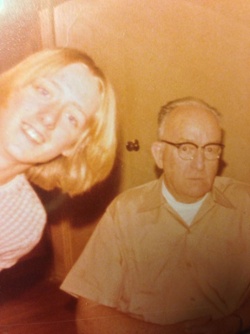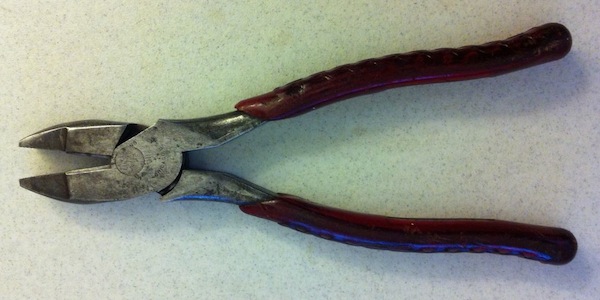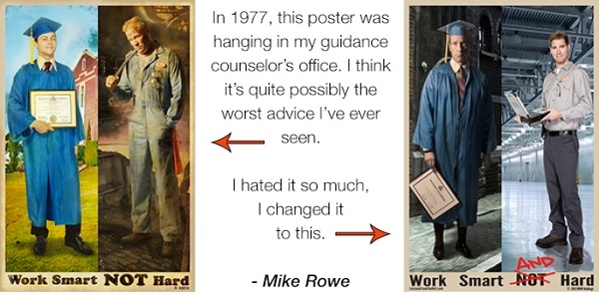Is Mike Rowe Right about the War on Work?

 Peripeteia and anagnorisis. Not the kind of words you expect to hear from people who do ‘dirty jobs.’ Of course, Mike Rowe doesn’t do dirty jobs for a living the same way that most of the people he covers do. Anyone who’s done what Mike Rowe did with lamb testicles that day in Craig, Colorado, though, is allowed to use a couple of big words.
Peripeteia and anagnorisis. Not the kind of words you expect to hear from people who do ‘dirty jobs.’ Of course, Mike Rowe doesn’t do dirty jobs for a living the same way that most of the people he covers do. Anyone who’s done what Mike Rowe did with lamb testicles that day in Craig, Colorado, though, is allowed to use a couple of big words.
Peripeteia and anagnorisis. Not the kind of words you expect to hear from people who do ‘dirty jobs.’ Of course, Mike Rowe doesn’t do dirty jobs for a living the same way that most of the people he covers do. Anyone who’s done what Mike Rowe did with lamb testicles that day in Craig, Colorado, though, is allowed to use a couple of big words.
The importance of hard work
I’ll get to those testicles later, but first let’s talk about work. This past Friday was National Tradesmen Day. Last year, I wrote about that special day and Mike Rowe and my grandfather, Allison A. Bailes Sr. That’s him in the photo you see here (my grandfather, not Rowe). And yes, that’s me photobombing before the term even existed. I think the picture was taken in 1976, when I was 15.
Through most of the 1970s, I spent two months each summer at my grandparents’ house and got to go out and ‘work on the truck,’ which meant going on calls with Pappaw and my uncle Dickie. I learned a lot during those summers. I learned what it meant to spend a whole day in hot attics, cleaning out sewer lines, and serving customers. I learned that my grandfather was as respected in the community as he was in the family. I learned that hard work is an honorable thing.
But I didn’t want to have the same kind of blue collar career as Pappaw. I wanted to go to college and ‘work smart, not hard.’† So I got a physics degree. Later I went back and got three more.
I have to say, though, that some of the most fulfilling times in my life have been when I was doing physical work. In 1981, for example, I rebuilt the engine in a 1961 Volkswagen Bug. That was at my grandparents’ house, and Pappaw provided a lot of support to help me get through it. The lawnmower putt putts of that 40 horsepower engine when I started it up for the first time after weeks of work is probably still the sweetest aural experience of my life.
Seven years later, I rebuilt the engine in another VW. The thrill of doing it for the first time wasn’t there that time, but I had to do it under more adverse conditions: I was working in a freezing cold garage every night for a couple of weeks.

Then, from 2001 to 2003, I spent thousands of hours building a green home. I even used Pappaw’s Klein sidecutters (shown in the photo above) when I was installing the electrical fixtures. They were made in 1968 and were in his tool pouch all those summers I worked for Bailes Electric.
Work smart AND hard
Mike Rowe has become one of my heroes. He puts himself out there and does stuff that makes me cringe. I watched an episode where he was climbing up one of the huge support cables on the Mackinac Bridge, and I could feel myself struggling to breathe from fear of heights.
Even better, Rowe has started a campaign to fight what he calls the ‘War on Work.’ He’s got a website called Profoundly Disconnected, where he promotes the trades and combats the bias against doing hard, physical work. He also has a foundation to support the trades, Mike Rowe Works. This guy is the real deal!
The image above, Rowe shows one of the ways the bias against the trades shows up. The poster on the left was what confronted students in the guidance counselor’s office at his high school. The one on the right is his reworked version to show that it’s OK to go into the trades.
About those lamb testicles…
Now, I mentioned lamb testicles in the opening paragraph, so I suppose I should fill you in on the story. And what a story it is! The thing is, I can’t really do it justice, so I suggest you watch this TED Talk that Rowe gave in 2008. Rowe is not only a great promoter of the trades, he’s also one of the best speakers I’ve seen (in video). In addition to learning what he did with those lamb testicles, you’ll also find out the meanings of peripeteia and anagnorisis.
After watching that, I was in awe of what he’s done and what he’s doing. We need the trades. Rowe’s big issue is the decaying infrastructure in the US, but we also have a huge number of existing homes that need to be fixed. Every year we build more new homes to add to the list of homes that need to be fixed. New homes are getting better, but there’s still a long way to go.
We need smart people who understand building science to do the design and engineering and training. We also need smart people in the trades who bring it all together and make it happen. This idea that people are either book-smart or real world-smart is a false division. Rowe said it best in his TED Talk:
“Clean and dirty aren’t opposites.”
Related Articles
Not All Knowledge Comes from College
Why Won’t the HVAC Industry Do Things Right?
How I Learned to Count by Building a Green Home
Footnote
† Actually, I didn’t want to work at all, but the story of my emotional dysfunction is beyond the scope of this article. The type of work I’m talking about in this article would not have solved those problems; that required deep, inner work to get me to the point where now I’m less of a basket case than I was. Still, spending all my time building the house in the summer of ’02 after my dad died was one of the most therapeutic things I’ve ever done.
This Post Has 15 Comments
Comments are closed.


Great article, Allison. I am
Great article, Allison. I am of the belief that knowing how to physically build a structure correctly is at least as important as anything one will learn in a classroom, maybe more. And understanding building science and how to physically put it all together is the most fun part.
Well done, Dr B! My take is
Well done, Dr B! My take is we have some extremely talented professionals in the trades, just not enough of them. Taco hosted a screening of the film “The Tradesmen, The Art of Work” a couple of years ago. We had nearly 200 trade professionals in attendance – but only 3 of them were under the age of 30.
Allison,
Allison,
This has to be one of the greatest posts on the challenge that we have in this entire energy efficiency discussion. It really summarizes the challenge that we have in our mindset about what ” work ” really is.
Great job.
The problem is a lot of
The problem is a lot of students that are better suited to trade work are taking the wrong path. Going to college and getting a degree in a worthless study only to be stuck with $50k in student loans and no job. How many people have jobs unrelated to their degree they paid so much for?
I had the experience at age 5
I had the experience at age 5, to spend a day with some descendants of Basque Shepherds growing up in Idaho.
I watched the process Mike describes. He describes it much better than I can. It was great to hear his story and the connections he made to work and the real world.
Yes, the poster is similar to one in my guidance counselors office. I know which in my high school class were encouraged towards college and which were encouraged towards trades.
We are reaping what we sowed. The HVAC guys that disdain basic arithmetic, because we’ve always done it that way are but one example.
Allison you are on to
Allison you are on to something here. As the head of an HBA I’m around a lot of contractors who are smart, progressive and fully engaged in emerging building science. But if you get three or four of them together and ask them how they did in school, at least one of them will bring up the D word – dyslexia. As a contractor for 25 years before I became an HBA Executive Officer, I was around many very talented workers who couldn’t read words but could read plans and tape measures. Most of them were smart and learned to overcome their deficiencies.
Our educational system has virtually abandoned trades education in public high schools in favor of making everyone “college-bound”. In our “progressive” town we have a nearly 50% drop-out rate because of these misguided priorities. And the school system has accepted this because once the dropouts are out of the system the percentage of graduates who go to college is high, so it feels like success.
The tragedy is that many of those dropouts wind up in our industry anyway. But because they have had years of shattered self-esteem, they often come with baggage – drugs, alcohol, ajudication, poor work habits, etc. Here in our town, with strong support from our HBA and Communityc College, we are now underway with efforts to change that paradigm and are laying the groundwork for a Sustainable Careers Academy that would be a magnet school focused on hands on, experiential education. The idea is to convince kids to stay in school because we need the brightest and most motivated to learn the skills necessary for building homes. Reading may be fundamental but it isn’t the only thing. Convincing a young man that a great career is possible and that being tagged as stupid, slow, or stuck on the short bus is not one’s life sentence is necessary for the future of our industry.
Glad you have brought up the subject.
Right on point. How can we
Right on point. How can we do buildings right when there is this deep lack of respect for the workers that need to apply the science, and likewise back at those running the business and consulting on how to do things right? – – “That college kid ass-whipe doesn’t know diddly” and “Those knot-heads can’t get it right.” Are just a few comments we hear every day.
As technology exponentially drives efficiency (read less workers needed) and we learn (?) In school only college degrees and white collar jobs are respectable, who would wan’t to do “work?”
Add then add the trend to pay less and less, always insist on lowest price, and focus on high profile individuals. We worship the sports star who earns millions per game and pity the guy who keeps the toilets working. BUT, we absolutely insist the toilets work perfectly all the time. Maybe the plumber is more valuable to our lives than the sports star!?
Maybe we should take the HVAC tech to lunch, and training to the field!? Instead of taking the boss to lunch and training just supervisors & consultants in air conditioned classrooms? (Where, by the way we talk down those technicians being driven to do more work in less time, and without the right tools, for not analyzing the house as a system with proper building science.
As Arsinio used to say; “Makes you say – Hmmmmm.”
Mike Rowe rocks. I appreciate
Mike Rowe rocks. I appreciate his advocating for the trades. I knew back in high school I wanted to enter the HVAC trade vs. college. That said, I do see the value of a college level HVAC program coinciding with field experience. The “learn it in the field only” guys can get pretty far, but without a solid grounding in how all this stuff REALLY works, they can get hamstrung on tough calls. Likewise the college HVAC student who lacks field experience can be “all hat and no cattle” when trying to get field work.
This coincides with Mike’s “Work Smarter AND Harder” poster. We need hard working, smart people in HVAC, building science remedial work, and every other honorable trade we depend on daily. As an HVAC instructor I hope to instill even a fraction of that emphasis as Mike Rowe does full time.
Great post. There’s nothing
Great post. There’s nothing wrong with a college degree, but it needs experience to make it saleable. That’s the rub, people come out of college with a degree and no experience, then find they need to start from scratch. Whatever path one chooses in life, the best career advice I ever got was that a person should find their niche, something they are good at and enjoy, and then pursue it regardless of pay or status. The second best piece of advice I got was that a person can get pretty much what they want in life, it just takes a lot longer to get it than you want it to. Now retired, I found both of those pieces of advice to be absolutely true and they worked for me.
Re: Lamb Testacles
Re: Lamb Testacles
Errol Flynn’s Biography (My Wicked Wicked Ways)describes the same castration procedure he employed on a ranch in Australia during his pre- Hollywood career. saecastration process
The problem with this premiss
The problem with this premiss is that “hands on” types of different trades relate to each other. I majored in English, but couldn’t wait to finish and build cabinets. I did so for 20 years. Being on job sites for all those years I came to understand the invisible (sometimes) hierarchy that existed. The HVAC guy thought he was smarter than the electrician- the electrician thought he was smarter than the plumber- the plumber thought he was smarter than the cabinet guy…and this went on down the line. I didn’t witness any if the we-are-all-in-this-together coziness that Rowe wants to portray.
Andrew is right. That
Andrew is right. That competitiveness and we know better is still prevalent on the job site today. I see more of it from the older tradesman, then the younger.
Most recently was the plumber that was unhappy with the placement of the HVAC unit making it hard to get his DHW in place. I had to point out that the HVAC guy did what he did because the plumber ran the pex in the slab wrong.
When the various trades get pushed by the builders for quality over low price – that attitude will begin to change.
Not to mention the cronyism
Not to mention the cronyism and nepotism that went along with unions. I don’t know how it is today, but 30 years ago, you practically had to be born into the trades in order to get into the more lucrative union jobs.
Great article Allison. Mike
Great article Allison. Mike Rowe is working with Governor Deal’s Go Build Georgia campaign http://gobuildgeorgia.com/news/2012/01/deal-mike-rowe-team-up-to-plug-ga-s-skills-gap/. I work in home building and teach carpentry and construction management students at an Atlanta community college, so I see this first hand.
Kim Shanahan (and Mike’s poster) is right on point – we’ve got to change our education system. The drop-out rate isn’t increasing because kids are getting dumber (well maybe a little), but because the one-size-fits-all education philosophy does not work. We’re doomed if we don’t return shop class, wood shop, and other trades options to the schools.
Right on…and the attitude
Right on…and the attitude (negative) carries over into the trades – each despising the other and running roughshod over work performed by the other (destroying, “unintentionally”, work gone on before, not caring if other work has been compromised by our despicable behavior.
Lousy attitudes produce lousy workmanship…however that attitude has come to envelope our minds.